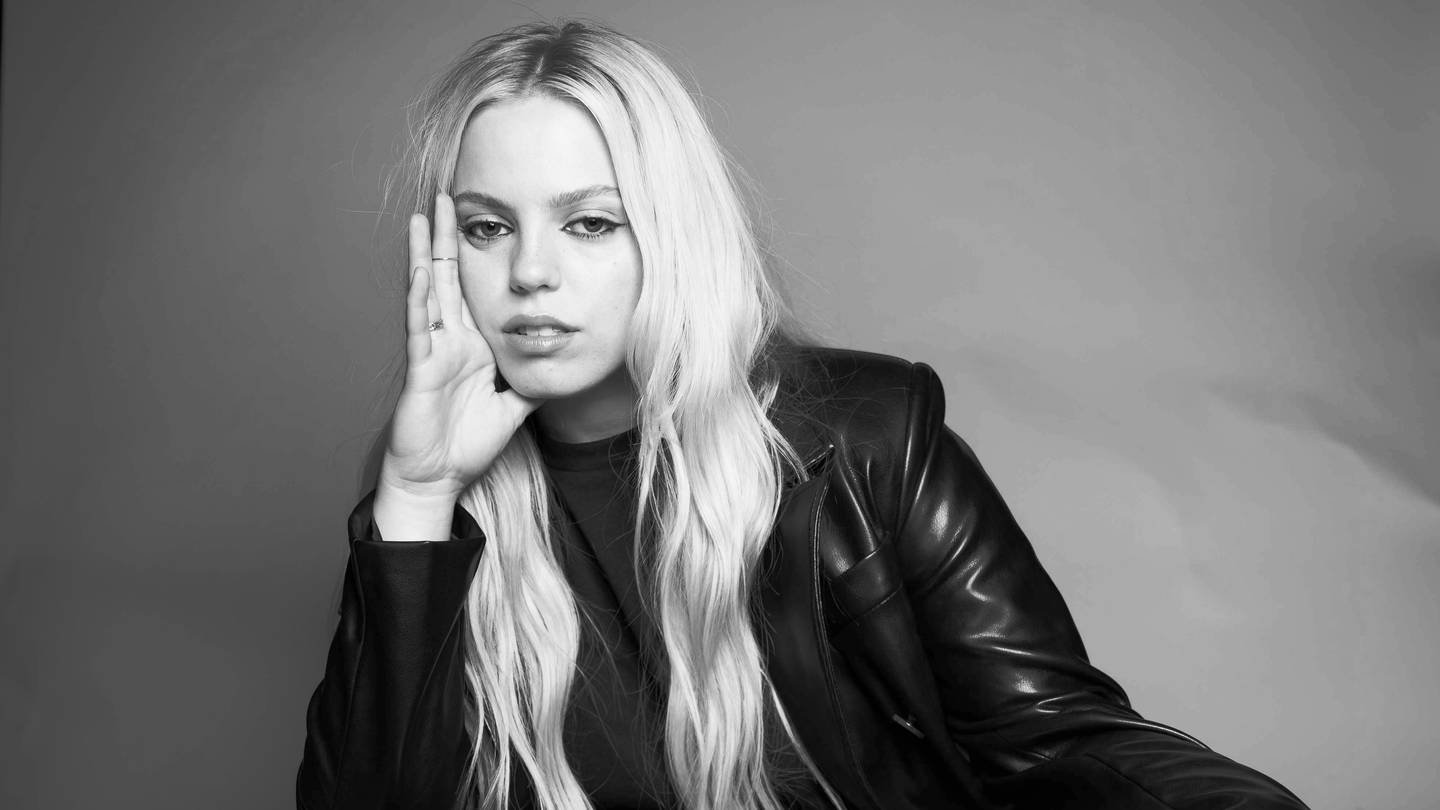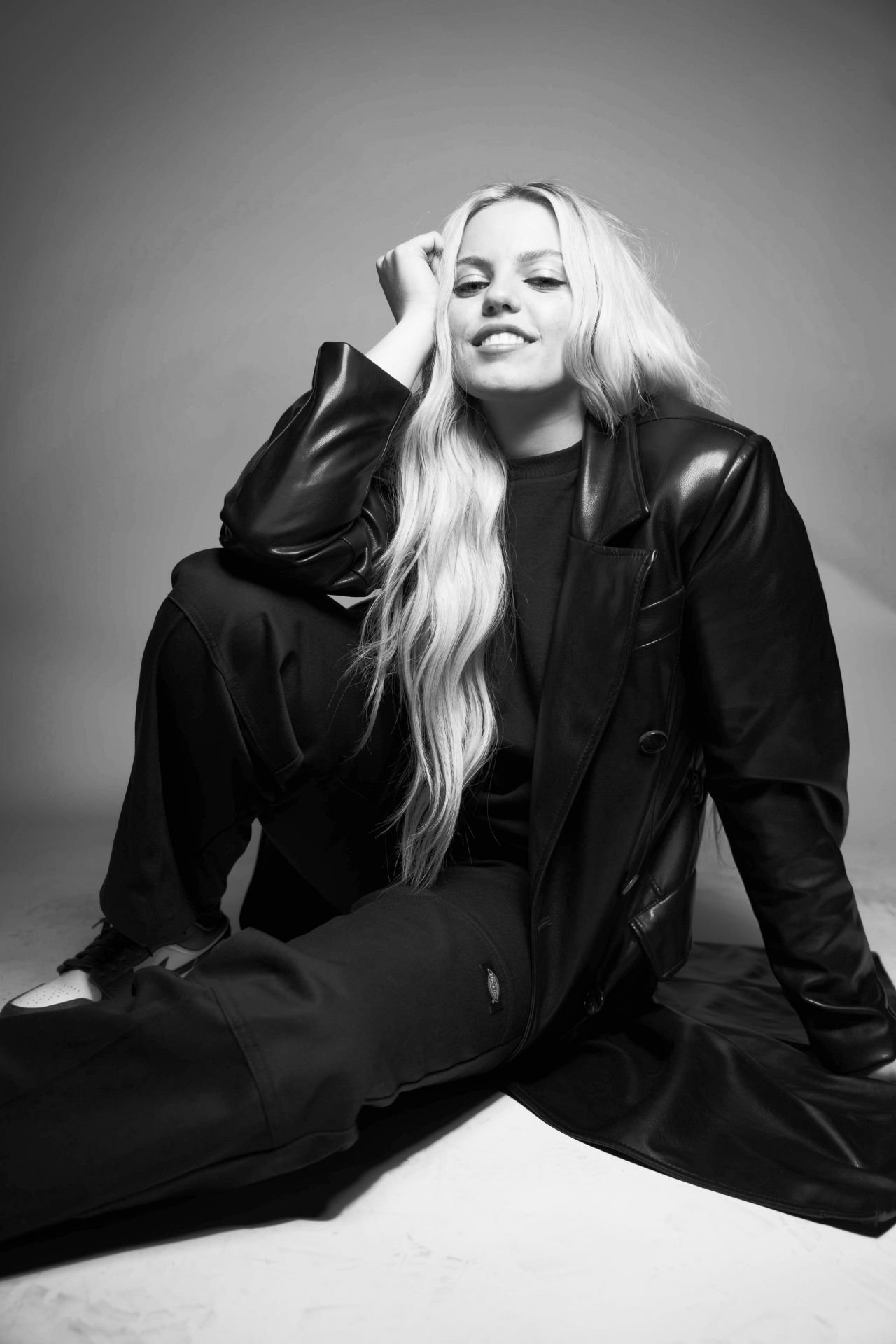Reneé Rapp Can’t Be Everything to Everyone
By: Cailyn Schiltz
Picture a Venn diagram. One circle encompasses Taylor Swift fans, the kinds of people who pore over lyric booklets to dissect every line. Another holds the girls doing treadmill struts to show tunes, her current favorite is the Mean Girls Original Broadway Cast recording, but she’ll listen to Hamilton in a private Spotify session. The final circle is a sensitive vulnerable type, don’t hand them the aux unless you’re ready to contemplate growing up and the human condition with the likes of SZA and Jorja Smith.
MTV
Reneé Rapp’s Everything to Everyone EP sits in the little triangle where all of these intersect. The extended version uses nine songs to illustrate the complicated and messy inner world of Rapp herself, complete with intensely relatable storytelling, a powerful range of vocals, and a refreshing Gen Z perspective on what it means to fall in love and break up.
Rapp kicks off the album with “Everything to Everyone (Intro),” which functions as an interlude more than a standalone track. She illustrates her tendency to give all of her time, energy, and emotional resources to the people around her, but clings to a shred of self-preservation. The lyric “I can’t be everything to everyone,” in Rapp’s breathy head voice stands out against the stripped-down, harmonic production of this track. She sets a strong boundary and precedent for the rest of the EP: this is for and about herself.
“In The Kitchen” is a waltz with whiplash. Listeners swing between romanticized vignettes of domestic closeness and a sweeping, belty chorus of loneliness and desperation in a place that once held love. What struck me the most about this song was the honesty in the lyrics about the role of social media and digital artifacts in a breakup.
Rapp sings, “I’m too scared to delete all our videos ‘cause it’s real once everyone knows.” I’m the same age as Rapp, and I know that many people in our generation broadcast our lives on social media in hopes of finding validation and connection, but it often has the opposite effect. One minute, you are in love. You want a public record of how happy you are at this moment. Later, you get stuck in limbo. The joy that was in that photo is now a painful memory, but archiving it means admitting defeat and re-curating your digital life to erase what once was. Deleting the posts means you’re ready to talk about it, and leaving them up is living a lie. In that in-between space, Rapp “dance[s] with ghost[s] in the living room.”
“Colorado” switches the mood and kicks off with a pop sound: upbeat drums, clap effects, and an image of the picture-perfect life Rapp could have somewhere else. It feels like the cool younger sister of Taylor Swift’s “Welcome to New York.” While Swift sees New York as this place full of promise, connection, and opportunity, Rapp loves Colorado for opposite reasons. She wants to disconnect from everything at home, reinvent herself, and disappear with someone just as beautifully troubled as she is. Despite all of the anonymity and peace Colorado would bring her, Rapp is choosing to stay planted with the beloved chip on her shoulder. “I’ll choose the devil I know over the heaven I don’t,” she sings; placing a comfortable wallow over the work it would take to achieve happiness. Colorado is a song about a fantasy, but also the awareness that it isn’t all it’s cracked up to be.
The next track takes the listener from a far-removed fantasy to a deeply intimate plea. “Don’t Tell My Mom” is the thematic and musical peak on this EP. Rapp doesn’t just sing, she emotes about yet another instance of giving away too big a piece of herself and suffering in silence. The titular request at the center of the song is an act of perceived selflessness. Rapp is hiding her pain in hopes of protecting the person who loves her most, her mom. “She hurts when I hurt, my scars are her scars,” she sings. The line “Mama I’ll lie just for you” comes straight out of her chest. When you’re 23, you can’t show your mom love with macaroni necklaces and a handful of dandelions anymore. A scented candle or a pair of earrings doesn’t convey the level of gratitude you feel either. So, the best thing you can do is give her a reprieve from the hardest part of motherhood: knowing your child is hurting, and being unable to do anything about it.
Rapp cares so much about her mom’s well-being that she’d rather suffer in silence. This calls back the limbo period from “In The Kitchen” and begs the question of whether she truly hides her pain to prevent spreading it, or if she just prefers to keep her cards close to her chest so she can heal privately. Both could very much be true.
MTV
What solidifies this as my favorite song off the EP is Rapp’s vocals. She has so much control over every word, every note coming out of her mouth, and it amps up the intense vulnerability already present in the song. For example, she uses the word “worry” in a couple different contexts, and each one of them sounds different. When the worry comes from her mom, you can hear the pouting lip, the deep scoop of someone who just wants to be allowed into her daughter’s inner world. When Rapp responds with “don’t worry about me,” you can hear a more restrained quiver. The pain is bubbling to the surface, but Rapp is keeping it under control.
This kind of emotiveness seems to come from her years of musical theater experience; Rapp is a trained actor and currently cast in the role of Regina George in a movie adaptation of the Mean Girls musical. With the level of control she expresses, Rapp could have obscured her pain a little bit more on this EP, but she instead chose to lay her entire heart out in front of an audience.
One sad song about obscuring pain for someone else’s protection bleeds into the next: “What Can I Do.” Rapp effortlessly switches which set of heartstrings she is tugging on, this song is about something many queer women know all too well, falling for a straight friend. Friendship demands a level of platonic intimacy, but what can you do when you crave a different level of closeness? There’s a sense of resignation and apathy in the chorus, she doesn’t even balance out the costs and benefits of revealing her feelings. Rapp would rather keep her feelings to herself if it means keeping this girl in her life in any capacity. The risk of not only rejection, but losing a friend is too great.
Rapp uses her soft, delicate falsetto and a stripped-down instrumental approach to this track which gives it a dreamy aura that hovers above the rest of the EP like a cloud of perfume.
“Too Well” is a major sonic shift after the past couple songs; Rapp introduces it with a simple piano melody, and then the upbeat drums rocket in. Sadness morphs into rage. Rapp is constantly at the mercy of her own emotions, but at least being pissed is a change from despair. This song feels thematically similar to Olivia Rodrigo’s pop-punk anthem, “Good for You.” Both express frustration that someone can move on and find happiness while you are still hurting, adding insult to injury. The difference is that Rapp directs that frustration back in on herself. The pre-chorus sounds like a stream of consciousness, she justifies her anger, copes with emotions ebbing and flowing and then shifts the anger to herself. The chorus soars in with an impressive run on “I” and then the same note on each word of “get so sick of myself, can’t stop overthinking.” Rapp is still hung up on this relationship; she doesn’t easily forget everything she once had, but she internalizes that hurt and directs that anger towards herself.
“Moon” was the closing track of the original EP, and it continues to develop the themes of breaking up, giving too much, and self-resentment that exists throughout the album. Aside from that, the song doesn’t seem to do much else. It feels like a lackluster ending, especially after a powerhouse track like “Too Well.” The premise of seeing an ex in the night sky has been done better by other artists, like Grace Potter and The Nocturnals in “Stars” or Bruno Mars’ “Talking to The Moon.”
The bonus tracks, “Bruises” and “Everything to Everyone - Extended Version” fall into the same trap as “Moon.” They’re pretty songs that showcase Rapp’s vocals and emotional inner world, but they don’t hold a candle to “What Can I Do” or “Don’t Tell My Mom.” There’s a reason these two weren’t included on the original EP, they don’t measure up.
“Bruises” also disconnects from the overarching themes of the album. It’s about Rapp’s sensitive nature; she uses vivid imagery to describe the marks that even well-meaning jokes leave on her. It has the self-loathing present in other tracks, but it’s divorced from the breakup and the romantic relationships that have previously caused it.
“Everything to Everyone - Extended Version” feels so similar to the first track on the album that it’s unnecessary. The extra verse stretches the song to a little under three minutes, but doesn’t add much in terms of content. The last 30 seconds feature a soaring clarinet (?) over a moody piano like; it’s the best part of the song. That could have been repurposed to make an “Everything to Everyone” outro that would bookend the EP and finish on a far stronger note.
Despite my thoughts on the last three tracks, I think this EP shows promise for Rapp as a musician. The first six songs flowed beautifully and told a story that her young audience can relate to. Rapp is a powder keg of potential, and I am so excited to see what comes next as her voice and her songwriting skills continue to develop.
Rating: 4/5


